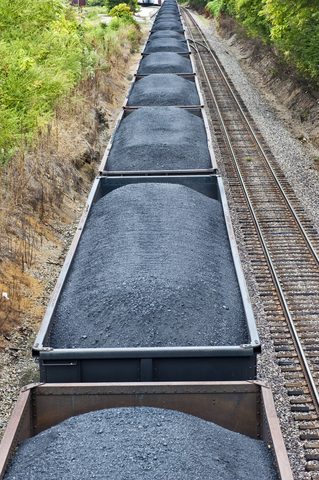 Why Rev. Laurie is against coal in the Port of Oakland..
Why Rev. Laurie is against coal in the Port of Oakland..
The “Golden rule” of all the world’s religions teaches us to care about our neighbors. Who doesn’t care about the kid down the street breathing dirty air?
As Flint has made us all aware, these are matters that particularly impact poor children of color. West Oakland has many parallels. This is a local health issue, especially for the children of West Oakland who are already contending with fumes & noise from the heavy volume of diesel trucks & other pollution from the port. What if it were your children? Jess Dervin-Ackerman of the Sierra Club points out that “major organizing victories squashing export proposals in Oregon and Washington mean that Big Coal has turned its sights on California. Bay Area communities are already burdened by poor air quality caused by our five oil refineries and the shipping industry. We even have some coal snaking through our neighborhoods by rail and shipping out of a private terminal in Richmond. Now Oakland is in Big Coal’s crosshairs.”
It’s a bad investment for Oakland, for both the short term and the long term. The coal industry is rapidly failing, and demand is rapidly falling. Why would you want to invest in something going in the wrong direction, even in the short term, as major coal companies are going bankrupt? We’re living in a time when you can make good financial arguments about it. Things have really shifted because, in many states, renewable energy is cheaper than fossil fuel . The second line of defense from the fossil fuel industry is denial, and the first line of defense is money – it’s going to cost us too much. However, as Paul Krugman, Nobel Prize economist, has recently noted, fossil fuels are way of past, renewals are way in the future – if we care about the future, we care about switching.
In 1987 the United Church of Christ Commission for Racial Justice published an explosive report entitled Toxic Wastes and Race in the United States. People of color, especially African-Americans, the report demonstrated, are the most likely victims of industrial pollution. Based on the findings, Reverend Ben Chavis helped launch the movement against “environmental racism.”
“Environmental racism is racial discrimination in environmental policymaking. It is racial discrimination in the enforcement of regulations and laws. It is racial disccrimination in the deliberate targeting of communities of color for toxic waste disposal and the siting of polluting industries. It is racial discrimination in the official sanctioning of the life-threatening presence of poisons and pollutants in communities of color. And, it is racial discrimination in the history of excluding people of color from mainstream environmental groups, decision-making boards, commissions, and regulatory bodies.”
– Rev. Benjamin Chavis, Jr.
“Environmental justice advocates are not saying, ‘Take the poisons out of our community and put them in a white community.’ They are saying that no community should have to live with these poisons. They have thus taken the moral high road and are building a multicultural and inclusive movement that has the potential of transforming the political landscape of this nation.”
– Benjamin Chavis, Jr.

